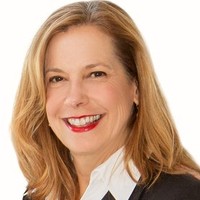Over the course of their aging, Kay Bransford found herself increasingly caring for her parents. Her family knew it was time to jump in “when we saw my parents spending and giving away a lot of money that was atypical for them. My brothers wanted to get control of the checkbook.”
That didn’t go over well with her parents. Kay took a more low-key approach, focusing on purpose and meaning. She adopted a ”she’ll let me know when she needs me” attitude and waited for her mom to ask for help, but “was kind of doing it [helping] in the background anyway.”
Hindsight offers wisdom and clarity you just don’t have in the moment. As Kay notes, “You’re not really a caregiver those first few years; you’re a witness to the impending accident that’s coming down the road.”
Spend two minutes chatting with Kay Bransford, and it’s clear being a witness just isn’t suited to her personality. She’s a doer. Here are 3 ways Kay is making life better for dementia care partners.
Way #1: The Award-Winning Product
Ideas for ways to do it better came to Kay over the years in the course of helping her parents, before dementia was ever diagnosed. And that’s how Kay’s award-winning product and service MemoryBanc was created. “It came from my own frustration….I felt, as a caregiver, I was failing everybody.”
Kay saw the need to get documents, accounts, and passwords organized as she was assisting her parents in paying their bills and managing various health conditions and doctors. MemoryBanc is such a great solution to keeping everything in one safe, secure spot that it won the AARP Foundation award for Older-Adult Focused Innovation.
One of the challenges Kay faced was sorting through the volume of documents she found in her parents’ home, separating bills from junk mail, solicitations from charities, and outdated financial documents. (Hanging on to items like this is a sign that it’s time for intervention.)
Trying to figure out what needs to be saved and secured and what can be tossed is overwhelming and can lead to action paralysis. Kay solves that problem for you with Save It or Shred It? Her gift to you, this definitive guide lets you know what to keep and what to shred.
Claim your copy and learn the 70 types of information you should have documented and organized, including additional items no one mentions, but might be invaluable to you and your family.
Way #2: The Award-Winning Blog
Eventually, it became clear both Kay’s parents had dementia. She started her award-winning blog Dealing with Dementia: A family caregiver’s journey to deliver care with grace and humor. Kay brings her experience as a family care partner as well as a professional Daily Money Manager to her posts.
Way #3: The Award-Winning Service
As a Daily Money Manager, Kay says, “It’s so important to maintain that realm of normal” for clients, who are mostly The Silent Generation.
A big key to her success is her approach. Coming into a new client’s home, she says, “I usually do it as ‘Susie Saver’ and it becomes social engagement, they keep meaning and purpose.”
Kay is often brought into a situation when “there are some shady things happening, like one client who was paying two lawn services.” Unfortunately, that’s not uncommon. Kay says she sees this type of thing often. “I see it mostly through service providers or credit card charges where they didn’t realize it was a subscription.”
Another significant problem area is charities—even reputable ones. Once a person gives to one organization, their name is often sold to another organization. And another.
The solicitations pile up, often stuffed with note cards or address labels that can make an older adult (especially one who’s cognitively impaired) feel like they’re getting something for nothing unless they contribute again and again.
Kay warns, “I believe [these organizations] know what they’re doing isn’t dementia-friendly. And they don’t care.”
With the benefit of hard-won experience, Kay advises family to “know who your person is giving to, what organizations. Just do one annual donation at the end of year” so your person doesn’t get caught up in responding to solicitations every time they arrive in the mail.
She also urges the use of duplicate checks “so the check register isn’t the end all, be all” and you have a clear record for tracking where the money is going.
And above all, using an approach that folks will accept is key. “The generation this is hitting hardest is the Silent Generation, and they’re going to keep trying to manage it on their own, they’re not going to talk about it.”

